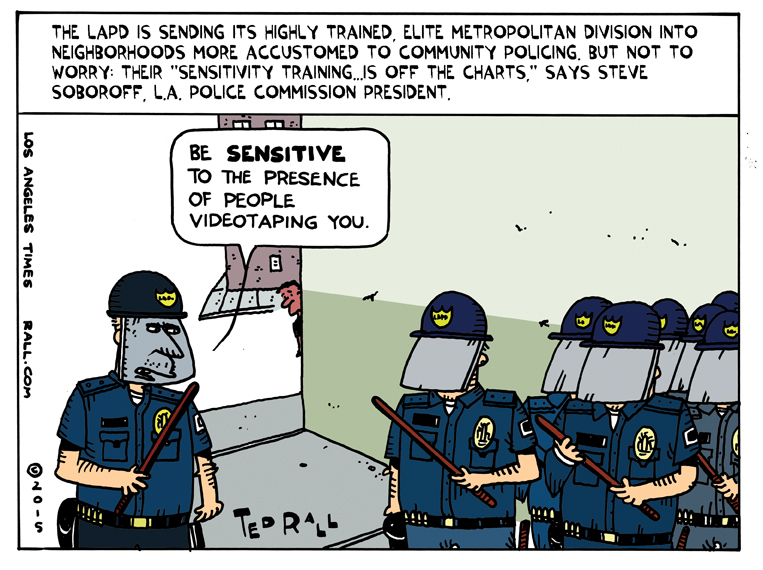Originally published by The Los Angeles Times:
Los Angeles Police Chief Charlie Beck “wants to swarm high-crime neighborhoods with more than 200 highly trained officers from the elite Metropolitan Division without undermining years of progress the department has made in building better relationships with those communities,” report Kate Mather, Richard Winton and Cindy Chang in The Times.
Metro Division cops are the best of the best — the department’s elite. So what could go wrong?
“Parachuting reinforcements into unfamiliar territory on this scale marks a change from the LAPD’s longtime community policing tactic of using beat cops to patrol neighborhoods. Metro officers are known more for their specialized tactical and weapons training than for their skills in building relationships with residents,” their report says.
Civil rights lawyer Connie Rice told The Times that she’s concerned the Metro Division deployment may make things worse. “The Metro officers are a super paramilitary version of policing,” she said. “They are not the cops who have relationships and know the communities. They tend to be very aggressive, historically. They don’t get to know a community…. They don’t get to know the people they police or, for that matter, the local officers.”
Today’s cartoon is centered around a rather hilarious quote by Los Angeles Police Commission President Steve Soboroff: Metro Division police “are not Ferguson-like. They are not South Carolina-like. Our training — sensitivity training, use of force training — is off the charts.”
Really, truly … do these people ever stop and listen to themselves?
Given the state of police-community relations in Los Angeles and across the United States — and I mean “community” in the broad, dictionary sense, not the euphemistic stand-in for “black neighborhood” — the burden of proof is on the cops. Asking us to “just trust them” just doesn’t cut it anymore.
Of course, there are establishment types who do still trust the police. Last week, for example, New York Times columnist David Brooks argued that police body cameras violate privacy rights — not for you and me, but for the cops. “Cop-cams…undermine communal bonds,” Brooks wrote. “Putting a camera on someone is a sign that you don’t trust him, or he doesn’t trust you. When a police officer is wearing a camera, the contact between an officer and a civilian is less likely to be like intimate friendship and more likely to be oppositional and transactional.”
I got a ticket a few days ago (for talking on my cellphone while driving). You know what?
It wasn’t an “intimate friendship.”
Although that would certainly be a nice standard to which the Metropolitan Division should aspire.

